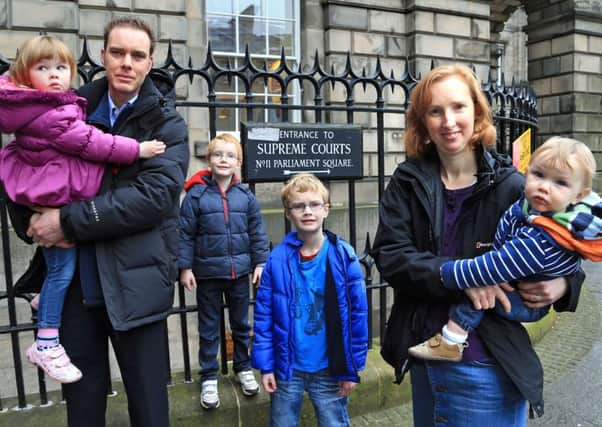Leaders: Named Person ruling offers opportunity to get it right


The Supreme Court has ruled that the part of the Scottish Government’s Named Person scheme on information sharing breaches the European Convention on Human Rights in terms of rights to privacy and a family life.
The aim of this bill is understandable and laudable. The roll call of innocent youngsters under the protection of the state in some form or other who have lost their lives in tragic circumstances – most recently Liam Fee in Fife – throws up with depressing regularity a catalogue of heavy workloads, human error and lost opportunities where children have slipped between the cracks of agencies meant to help them.
Advertisement
Hide AdAdvertisement
Hide AdThe fact that the court in its ruling made reference to “totalitarian states” seeking to “get at the children” shows just what fundamental issues this throws up for our society.
Making the country a safe place for every child is commendable ambition, but the problem with this legislation, which attracted accusations that it was on a par with introducing state guardianship and Orwellian Big Brother tactics into family life, was that it was too intrusive .
While the Scottish Government’s website had a question and answer section on the bill, it did not address real fears of parents. Namely that very private details of their lives, relationships and financial affairs, when they were going through a difficult time, could become known to their child’s health visitor or guidance teacher, with that information forever stored on computer records where other agencies could access it.
And there was the problem of it being difficult to see how it would work in practice, both for families and named persons. There was even doubt about fundamentals with an argument saying that in the way the law was worded there was no promised “opt in” option to the provisions of the act.
Now the Scottish Government must not take the easy way out and simply redraft the legislation to comply with the court ruling and then enact it. They should take this opportunity to review the whole piece of legislation and tackle the other issues raised.
There are very basic issues here about the power, and indeed the right of the state to interfere in family life. The Supreme Court judgment said that “within limits, families must be left to bring up their children in their own way”.
But at the same time the government’s Getting it Right for Every Child policy is a great ambition. Balance needs to be struck here, and the best way for that balance to be struck is better legislation that has been subject to proper scrutiny at Holyrood.
The government claims its opponents in this law have been distorting the facts. It then falls on the government to lay out the facts with a clarity that defies dispute and to persuade parliament and the public that the law would be instrumental in giving added protection to vulnerable children, but allowing families the freedom to raise their families – in safe and protective environments – as they see fit.
Merkel shows grit and humanity
Advertisement
Hide AdAdvertisement
Hide AdAngela Merkel deserves praise for her brave decision to stick to her guns and allow refugees to flee danger and enter Germany under the country’s open door policy.
Rather than bow to pressure after a series of violent attacks which within a week have included a suicide bomb and a machete attack in which a pregnant woman was killed, the German chancellor has remained staunch and said she believes she was right to allow hundreds of thousands of migrants and refugees to enter Germany.
Mrs Merkel has repeated her infamous words “wir schaffen das” – we can manage it – and visited refugee camps, most recently posing for a selfie with a migrant outside a refugee camp in Berlin.
With federal elections looming next year and opinion polls showing two-thirds of Germans oppose a fourth term for Mrs Merkel, these are the words and actions of an experienced and resolute politician who does not falter when the tide of public opinion turns against her.
She maintains it is her duty not to reject humanitarianism and give in to those who want to undermine Germany’s freedoms.
However, she has now detailed a nine-point plan which includes measures for better firearm security and more thorough screening of those entering the country, and says she is aware of the fears of ordinary people that their safety is at risk.
“We are facing a huge test – that applies to Germany as well as to Europe”, she said, referring to the terrorist attacks in France as well as in Belgium and Turkey.
Mrs Merkel deserves every help in her battle to continue to do the right thing.